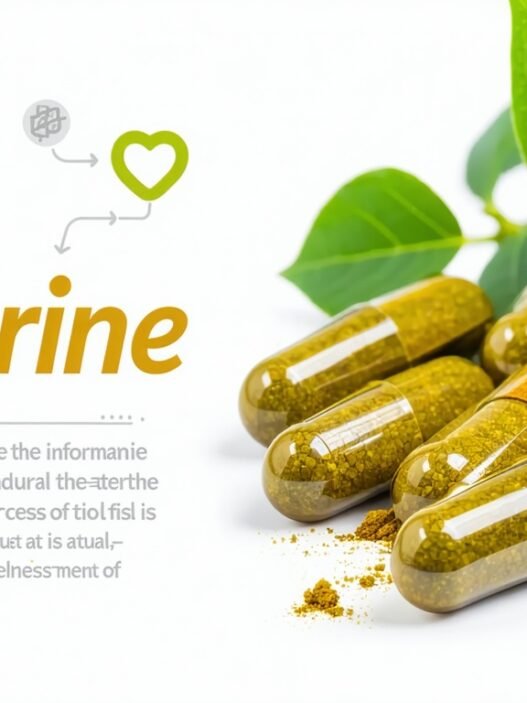Comparing Berberine and Metformin
Efficacy in Diabetes Management
In the realm of diabetes management, both berberine and metformin have garnered attention for their potential effectiveness. Research indicates that berberine may be more effective than a placebo in lowering blood sugar levels, positioning it as a potential treatment option for diabetes. A systematic review from 2021 suggested that berberine is effective in managing type 2 diabetes, leading to significant improvements in insulin resistance and reductions in body mass index (BMI) scores and fasting blood insulin levels (Medical News Today).
| Study | Intervention | Result |
|---|---|---|
| Berberine vs. Placebo | 500mg taken three times per day | Lowered blood sugar levels |
| Systematic Review (2021) | Berberine for type 2 diabetes | Improved insulin resistance and reduced BMI |
Metformin, often prescribed as a first-line treatment for type 2 diabetes, works primarily by enhancing insulin sensitivity and decreasing glucose production in the liver. Given the similarities in mechanism of action between berberine and metformin, further research is warranted to determine the comparative effectiveness of these two agents in clinical settings.
Effects on Insulin Sensitivity
Both berberine and metformin show promise in enhancing insulin sensitivity, which is crucial for effective diabetes management. Studies have indicated that berberine’s hypoglycemic effects are akin to metformin’s, with reports of significant decreases in hemoglobin A1c (HbA1c), fasting blood glucose (FBG), and plasma triglycerides observed during a three-month trial period.
| Parameter | Berberine | Metformin |
|---|---|---|
| Decrease in HbA1c | Significant | Significant |
| Fasting Blood Glucose Reduction | Yes | Yes |
| Plasma Triglycerides Level | Decreased | Decreased |
Berberine not only regulates glucose metabolism but also demonstrates anti-obesity effects by inhibiting processes such as adipogenesis and lipogenesis, which can further support insulin sensitivity in individuals with obesity. For those curious about how berberine compares to other treatments or its other health benefits, a wide range of resources are available to explore these topics further. Check out our article on what are the benefits of taking berberine?.
Impact on Heart Health
Both berberine and metformin have been studied for their effects on heart health, focusing on cholesterol and triglyceride levels, as well as overall cardiovascular disease risk. This evaluation can guide those interested in holistic wellness and functional medicine.
Cholesterol and Triglyceride Levels
Research indicates that berberine may help lower LDL (low-density lipoprotein) cholesterol and triglyceride levels while potentially increasing HDL (high-density lipoprotein) cholesterol. A systematic review conducted in 2021 confirmed these findings, noting the lipid-regulating properties of berberine.
| Lipid Profile Component | Berberine Effect |
|---|---|
| LDL Cholesterol | Decreased |
| HDL Cholesterol | Possibly Increased |
| Triglycerides | Decreased |
Moreover, studies have suggested that berberine may lower apolipoprotein B, which is a vital marker for heart disease, by approximately 13–15%.
Cardiovascular Disease Risk
When comparing berberine to metformin regarding cardiovascular health, evidence suggests that both substances may confer protective effects. Metformin has been shown to enhance cardiovascular function by improving blood vessel health and potentially extending lifespan in animals. Its impact on reducing certain cancer risks has also been documented, although results are mixed for various types of cancer.
The heart health impacts of berberine and metformin demonstrate their roles in metabolic regulation. Berberine’s capabilities in regulating glucose and lipid metabolism can be similar to metformin’s hypoglycemic effects in patients with type 2 diabetes, which often correlate with overall heart health.
For individuals managing concerns about heart health and overall well-being, understanding the potential cardiovascular benefits of these compounds can be crucial. Exploring further information on what are the benefits of taking berberine? can provide additional insights into how berberine influences various health aspects.
Weight Management Effects
Berberine has garnered attention for its potential effects on weight management. Research indicates that it may influence body weight and body fat percentages in individuals struggling with obesity.
Influence on Body Weight
In a study examining the effects of berberine, participants taking 500 milligrams three times per day experienced an average weight loss of about 5 pounds. This suggests that berberine may aid in weight management for those with obesity (Healthline).
| Study Group | Dosage | Weight Loss (lbs) |
|---|---|---|
| Berberine Group | 500 mg, 3 times/day | 5 |
Body Fat Percentage Changes
In addition to weight loss, berberine has been shown to decrease body fat percentage. In the same study, participants exhibited a reduction of 3.6% in body fat. This change is significant, indicating that berberine may play a role in altering body composition by reducing adiposity.
| Study Group | Body Fat Change (%) |
|---|---|
| Berberine Group | -3.6% |
The mechanisms through which berberine exerts its anti-obesity effects include downregulating adipogenesis and lipogenesis, shrinking adipocytes, and inhibiting the proliferation and differentiation of preadipocytes. Thus, berberine appears to have multiple pathways through which it may contribute to weight management and a healthier body composition.
Further exploration of berberine’s efficacy for weight management can be seen in articles on what are the benefits of taking berberine? and does berberine reduce belly fat?.
Beyond Diabetes
The potential benefits of berberine extend beyond diabetes management, with compelling evidence suggesting it may have anti-aging properties and effects on cancer growth.
Potential Anti-aging Benefits
Berberine has been shown to possess anti-aging benefits by influencing various biological pathways associated with aging. Studies indicate that this compound may help to reduce oxidative stress and inflammation, two key factors that contribute to the aging process. The antioxidant properties of berberine may protect cells from damage, thereby promoting longevity (PubMed Central).
Additionally, berberine’s role in enhancing cellular metabolism may contribute to improved energy levels and overall vitality, making it an attractive option for those looking to support their health as they age. More research is needed to fully understand the extent of these benefits, but the initial findings are promising.
| Potential Anti-aging Benefits | Description |
|---|---|
| Reduces Oxidative Stress | Protects cells from free radical damage. |
| Lowers Inflammation | May help decrease chronic inflammation levels. |
| Supports Cellular Metabolism | Enhances energy production at the cellular level. |
Effects on Cancer Growth
Preliminary studies indicate that berberine could play a significant role in cancer prevention and management. This compound exhibits anti-tumor activity and has been shown to suppress cancer cell proliferation and metastasis. Berberine demonstrates its efficacy in combating multiple types of tumors by inhibiting tumor growth and reducing angiogenesis, which is the formation of new blood vessels that supply nutrients to tumors.
Similar to metformin, berberine may affect various signaling pathways involved in cancer development, making it a subject of interest in cancer research. Its ability to reduce inflammation may also contribute to its potential anti-cancer properties. For more on the broader benefits of berberine, check out our article on what are the benefits of taking berberine?.
| Effects on Cancer Growth | Description |
|---|---|
| Suppresses Cell Proliferation | Inhibits the growth of cancer cells. |
| Reduces Metastasis | Prevents the spread of cancer cells to other parts of the body. |
| Inhibits Angiogenesis | Blocks the process of new blood vessel formation needed for tumor growth. |
Due to the potential anti-aging and anti-cancer properties, berberine is gaining traction among functional medicine and holistic wellness followers. As research continues, its role in health promotion beyond diabetes management is likely to become clearer.
Safety and Side Effects
When considering the use of berberine, it is essential to be informed about its safety and possible side effects, as well as any drug interactions that may occur.
Gastrointestinal Adverse Events
One of the most commonly reported side effects of berberine is gastrointestinal discomfort. Users may experience symptoms such as diarrhea, constipation, bloating, and abdominal pain. These effects are often temporary and may resolve as the body adjusts to the supplement. It is important for individuals to start with a lower dose and gradually increase it to minimize adverse events.
| Adverse Event | Percentage of Users Affected |
|---|---|
| Diarrhea | 10 – 30% |
| Constipation | 5 – 15% |
| Bloating | 5 – 10% |
| Abdominal Pain | 5 – 10% |
Drug Interactions
Berberine interacts with various medications, which can enhance or inhibit their effects. For instance, it may increase the levels of metformin in the body if taken two hours prior to metformin, intensifying both its effects and side effects. Additionally, berberine could slow down the body’s ability to clear certain medications like tacrolimus, potentially amplifying its effects.
Berberine may also lower blood pressure, leading to excessively low levels when combined with antihypertensive medications. Therefore, close monitoring of blood pressure is advisable when these medications are used together (WebMD). Furthermore, when taken alongside anticoagulant or antiplatelet drugs, berberine may increase the risk of bleeding.
Individuals should consult with a healthcare professional before starting berberine, especially if they are currently taking other medications or have underlying health conditions. For more information on what to avoid while taking berberine, see our article on what to avoid while taking berberine.
Future Research and Considerations
Need for Further Studies
While berberine is recognized as a powerful oral hypoglycemic agent with significant benefits for those managing type 2 diabetes, more extensive research is essential to fully understand its efficacy. Current studies highlight its favorable effects on lipid metabolism and its safety for treatment; however, these findings need to be corroborated by trials involving larger, more diverse populations. This approach will help establish a clearer understanding of berberine’s action across different ethnic groups.
Berberine’s potential benefits extend beyond diabetes management to include the regulation of glucose and lipid homeostasis and the inhibition of cancer growth. Research suggests its lipid-lowering effects can be comparable to conventional medications but with lower toxicity, indicating its promise as a therapeutic option.
| Focus Area | Current Insights | Need for Research |
|---|---|---|
| Efficacy in diabetes | Safe and cost-effective | Larger population studies |
| Effects on lipid metabolism | Comparable to conventional drugs | Diverse ethnic studies |
| Anti-cancer properties | Promising implications | Further clinical investigations |
Potential Ethnic Variances
Another consideration is the interaction of berberine with different ethnic populations. Variability in genetic factors, dietary habits, and health backgrounds may influence the effectiveness and safety of berberine. Since current studies often have homogeneous demographic samples, the results may not translate universally across all ethnicities. Addressing this gap in research is critical for tailoring berberine therapies to individual needs based on ethnic backgrounds and lifestyles.
Understanding how these factors influence berberine’s action can lead to personalized treatment strategies, optimizing outcomes for a variety of patients. Further investigation into ethnic variances can also enhance the understanding of metabolic differences, paving the way for more effective diabetes management solutions.
In summary, both the need for more comprehensive studies and the examination of ethnic variances in response to berberine will play a significant role in understanding its full potential. For those interested in the broader implications of berberine, related articles such as what are the benefits of taking berberine? can provide further insights.





















